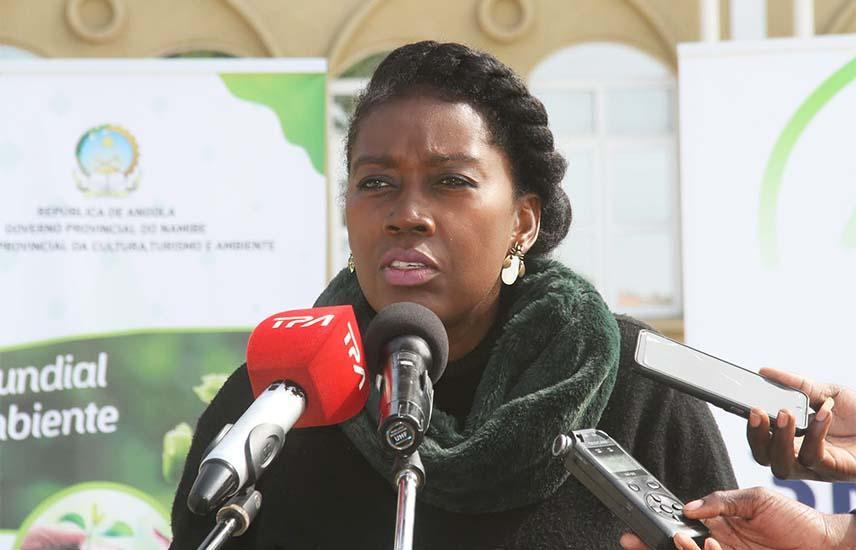Africa-Press – Angola. The indiscriminate felling of trees, mainly in Serra da Leba, excessive fishing, marine pollution and poor management of solid waste are among the main environmental problems in the province of Namibe.
According to the vice-governor for the Technical Area and Infrastructure of Namibe, Ema da Silva, the phenomenon has worried the local government, as it influences the appearance of periods of severe drought and the advance of the desert.
Speaking this Monday at the opening of the second Provincial Forum on Environmental Education in Schools, as part of the celebrations of World Environment Day, he said that the government of Namibe had outlined policies such as a “zero waste” plan, “Green Namibe”, “ environmental education in schools”, “construction of landfills”, “ecopoints”, “total sanitation led by communities and schools” and others, which have already started to have an effect.
Therefore, he referred to the need for society as a whole to reflect on the construction of a more sustainable environment that transmits confidence in the well-being of future generations.
The vice-governor said that the 5th of June is celebrated in a context in which the world seeks to mitigate the negative effects of a triple environmental emergency, such as the loss of biodiversity, climate change and increasing pollution.
“These problems were caused by all of us over several decades, with the indiscriminate felling of trees, pollution of rivers and oceans, uncontrolled exploitation of natural resources, in general, devastating ecosystems”, he lamented.
According to Ema da Silva, these negative environmental practices are compromising the well-being of more than 3.2 billion people around the world.
The forum debated topics such as “The importance of environmental education in the teaching and learning process” and “Sustainable practices to reduce the consumption of plastics”, among others.
Means for waste treatment
As part of the 5th of June, the municipal administrations of Tômbwa and Moçâmedes benefited from 20 bins for storing rubbish, two motorcycles and individual protection equipment, such as gloves and boots, for community service workers.
The means were provided by the European Union, within the framework of the 3RS project.
According to the vice-governor, who thanked the European Union for choosing Namibe to deliver these means aimed at mitigating environmental problems, the act represents another step in the provincial government’s strategies for improving basic sanitation and changing the environmental framework. .
On the occasion, the coordinator of the 3RS project in Namibe, Daniel Mucanda, said that it aims to strengthen the capacity to manage solid urban waste, thus contributing to the protection of the environment and improvement of the quality of life of the population. .
For More News And Analysis About Angola Follow Africa-Press






